Cyclone Remal gives a stark reminder of our crisis protection gap

Cyclone Remal has once again underscored the critical importance of disaster risk finance followed by anticipatory action in climate-induced disaster management. For the past five decades, Bangladesh has been a global leader in implementing anticipatory measures to mitigate the devastating impacts of cyclones. Both the government and non-government actors have employed measures related to anticipatory actions, which have proven to be effective. The global experience of insurance has been revealed as an area of consideration to minimise economic loss and appropriate measures to be taken to address non-economic losses.
Cyclone Remal has affected more than 37 lakh people in Bangladesh's coastal regions. Preliminary reports indicate that 35,000 homes have been destroyed, and nearly 150,000 homes have been damaged. Beyond the immediate destruction, long-term impacts such as waterlogged homes, damaged livelihoods, and impaired infrastructure will continue to affect the lives of those affected.
The visible damage is just the tip of the iceberg. Behind the shattered homes and ruined infrastructure lies a profound human suffering that is often overlooked. Families are displaced, livelihoods and education disrupted, injuries and health hazards increased, and their futures uncertain. The psychological toll of such a disaster, coupled with the physical destruction, makes recovery long and arduous.
Despite these successes, the ultimate goal remains bringing the death toll down to zero. The deaths that did occur during Remal highlight a critical area for improvement. Some of those who perished were elderly individuals who died on their way to the shelters. This tragic outcome points to the need for targeted strategies to assist the most vulnerable populations.
Bangladesh must intensify its anticipatory actions to address the evolving challenges posed by climate change and increasing cyclone intensity. This includes: 1. Intensify early warning systems with their interpretations to provide more accurate and timely information; 2. Building more robust and resilient infrastructure within communities to withstand severe weather conditions; 3. Collaborate with communities in disaster preparedness and response planning to ensure localised and culturally appropriate interventions; and 4. Develop specific strategies and facilities to protect the elderly, disabled, and other vulnerable groups during evacuations.
Rehabilitation efforts must consider the specific needs of vulnerable populations, especially the elderly and those living in coastal regions. Cyclone-resilient houses built using local materials such as sand and much less cement offer a promising solution. These houses, built with community participation, are designed to withstand strong winds and heavy rain with the provision of manual escalators and rainwater harvesting. Expanding this model could provide a sustainable solution for coastal housing.
Cyclone Remal brought new insights into the widespread concern it generated across the country. Not only were coastal regions affected, but the capital city Dhaka and the port city of Chattogram also faced severe disruptions. Landslides posed real threats in various areas, highlighting that cyclones can have a far-reaching impact beyond traditional high-risk zones. Given the widespread impact of climate-induced disasters, a holistic approach is necessary across the country.
This is high time for the banking sector to extend and accelerate green debt as part of its climate-responsive finance mechanism that could incentivise well-off individuals and entrepreneurs to invest in organic farming, climate-smart agriculture, resilient housing, environmentally friendly building materials, and water treatment plants.
Another lesson learnt from Cyclone Remal is that the Sundarbans, a vital natural safeguard against cyclones, are not as resilient as the forest once was. It struggled significantly during this cyclone, with reports indicating that it was submerged under five to seven feet of water. This submersion has destroyed the sweet water reserves within the Sundarbans, leading to a shortage of potable water in the region. Additionally, its wildlife has suffered, with reports that hundreds of deer and other animals were swept away by the waters. The shrimp farms have also been devastated by the cyclone. This has severely disrupted the livelihoods of yet another group of local people.
The Sundarbans has continued to provide some safety, and local NGOs have initiated mangrove planting projects in the area. The effectiveness of these initiatives is becoming evident, as the mangrove trees help fortify the forest and offer additional protection to the locals. Beyond their protective function, these trees can serve as a source of livelihood.
Remal disconnected three crore people across the country from electricity. This disruption posed significant risks on multiple fronts. The immense damage, amounting to nearly Tk 10 crore in the coastal region, raises the idea of whether it is time to shift these areas to solar energy and decentralise its management.
A crucial element in Bangladesh's disaster management strategy is the Cyclone Preparedness Programme (CPP). These volunteers have been providing first response services for the past 50 years and have been lauded worldwide for their dedication and effectiveness. To continue this success, it is imperative not only to motivate and train these volunteers in a multi-hazard approach, but also to introduce them to modern technology.
Cyclone Remal brought new insights into the widespread concern it generated across the country. Not only were coastal regions affected, but the capital city Dhaka and the port city of Chattogram also faced severe disruptions. Landslides posed real threats in various areas, highlighting that cyclones can have a far-reaching impact beyond traditional high-risk zones. Given the widespread impact of climate-induced disasters, a holistic approach is necessary across the country. This includes: 1. Developing urban resilience planning across the country; 2. Establishing integration of disaster risk finance and anticipatory action into the systems; and 3. Unfold climate change, disaster management, supply chain, and responsiveness to the people nationwide using local language and local references.
Kazi Amdadul Hoque is a climate, development, and humanitarian practitioner. His X handle is @KaziAmdadbd. He can also be reached at [email protected].
Views expressed in this article are the author's own.
Follow The Daily Star Opinion on Facebook for the latest opinions, commentaries and analyses by experts and professionals. To contribute your article or letter to The Daily Star Opinion, see our guidelines for submission.

 For all latest news, follow The Daily Star's Google News channel.
For all latest news, follow The Daily Star's Google News channel. 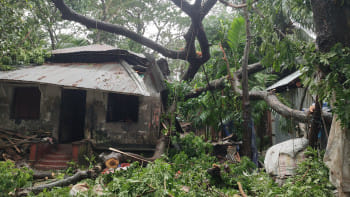
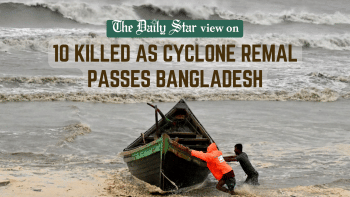



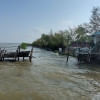
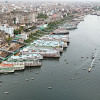
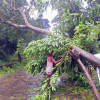
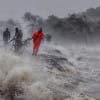


Comments